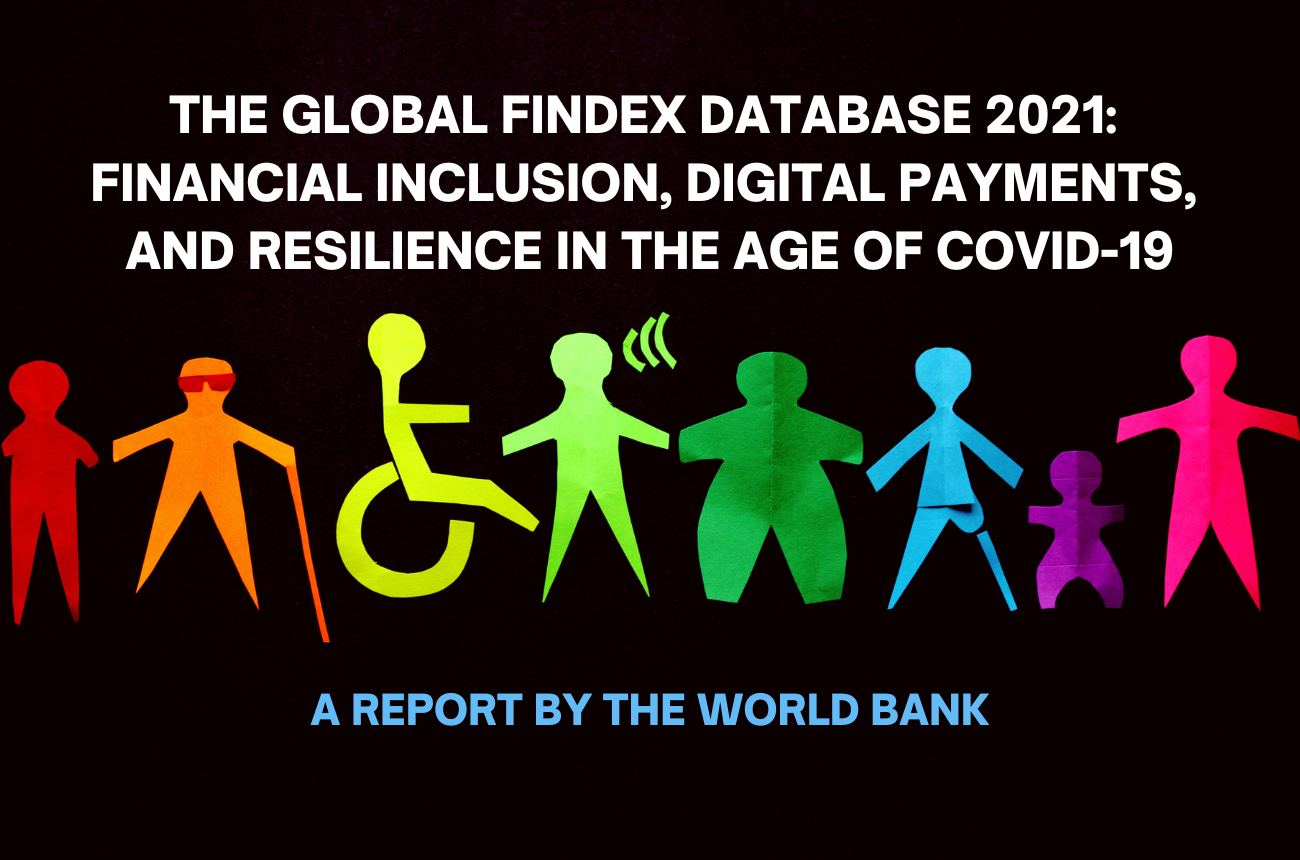The World Bank believes that financial inclusion is a key component of development and The Global Findex Database has been the undisputed source of information on global access to financial services, from payments to savings and borrowing. The 2021 edition is based on nationally representative surveys of approximately over 100,000 adults in 123 economies during the COVID-19 pandemic, and includes updated indicators on access to and use of formal and informal financial services as well as digital payments. It also provides insights into the behaviours that support financial resilience. The results also show that women and low-income persons have difficulty accessing and using financial services.
ACCOUNT OWNERSHIP
Owners of formal accounts—whether those accounts are with a bank or regulated institution such as a credit union, microfinance institution, or a mobile money service provider —are able to store, send, and receive money, enabling the owners to invest in health, education, and businesses.
– Worldwide, account ownership increased by 50 percent in the 10 years spanning 2011 to 2021, to reach 76 percent of the global adult population.
– The gender gap in account ownership across developing economies has fallen to 6 percentage points from 9 percentage points, where it hovered for many years.
Despite these areas of progress, there continue to be gaps in financial access for typically underserved adults. Women, the poor, the young, and those outside the workforce all continue to have lower account ownership rates on average than men and adults who are higher-income, older, and in the workforce.
USE OF ACCOUNTS
– About 50 percent of adults in developing economies borrowed money, although fewer than half used formal means such as taking out a loan from a financial institution, using a credit card, or borrowing through their mobile money account.
– Borrowing only from family and friends is as common in developing economies as borrowing formally, although in some developing economies it far outstripped formal mechanisms.
FINANCIAL RESILIENCE
– Family and friends are the first-line source of extra funds for 30 percent of adults in developing economies, but nearly half of those say the money would be hard to get. Reliance on family and friends is as high as 50 percent in the Middle East and North Africa.
– Women and the poor are less likely than men and richer individuals to successfully raise extra funds, and they are more likely to rely on family and friends as their go-to source.
Find complete report here.
